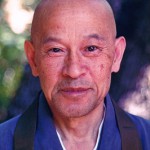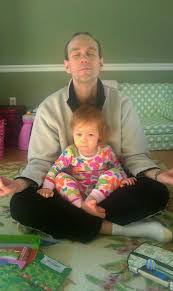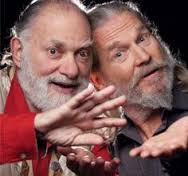…by Matt Robert…
 “If your mind is empty, it is always ready for anything; it is open to everything. In the beginner’s mind there are many possibilities; in the expert’s mind there are few.” Shunryu Suzuki
“If your mind is empty, it is always ready for anything; it is open to everything. In the beginner’s mind there are many possibilities; in the expert’s mind there are few.” Shunryu Suzuki
 A friend of mine has a son who had to present at Show-and-Tell. He came up to his dad with a conundrum. “I don’t know what to talk about — this really cool rock I found, or about my stuttering.” He chose the latter to his parent’s surprise and his teacher’s chagrin. Jason started to talk about his stuttering to a rapt audience of 3rd graders. A lively Q&A followed:
A friend of mine has a son who had to present at Show-and-Tell. He came up to his dad with a conundrum. “I don’t know what to talk about — this really cool rock I found, or about my stuttering.” He chose the latter to his parent’s surprise and his teacher’s chagrin. Jason started to talk about his stuttering to a rapt audience of 3rd graders. A lively Q&A followed:
“Is it fun to stutter?”
“Does it hurt to stutter?”
Jason put his stuttering out there as a thing, an object that he had. Just some thing like his cool rock or a broken bone that he got treated. He put it out for the class’s examination, and it lost the stigma, emotionality and embarrassment usually associated with stuttering. He helped his audience approach the situation and the object with beginner’s mind.
In early recovery, we lose beginner’s mind when we need it more than ever. We lose it for two reasons. First, for many of us, the stigma of addiction, the shame of  association with it, overcomes our ability to see freshly. We shut down because each possibility for new learning is blurred by shame.
association with it, overcomes our ability to see freshly. We shut down because each possibility for new learning is blurred by shame.
Second, we are experts in our addiction, and in the expert’s mind there are few possibilities. We have done this so many times — relapse after relapse, rehab after rehab. We’ve tried the same thing over and over again expecting different results — in relapse and recovery. We’ve listened to the confident voices of so many counselors, judges, and group leaders laying out exactly what addiction is and how we must treat it. We are experts of the most hardened kind.
Because we can’t access beginner’s mind, for one or both of these reasons, we can’t see recovery as the learning process it is. And it is a learning process, just like our addiction was. We lose sight of options. “It’s a disease, treat it like one. Keep taking the medicine.” The problem is that the same “medicine” doesn’t work for everyone. We need to see all the options.
 Try to hang on to your beginner’s mind. It’s not something we are, it’s something we can do at any time. Go to your “first” recovery meeting, not closed off in fear but open to the possibilities that are all around you. Find your way around a problem, instead of stubbornly trying to solve it. Recovery is a process, an experiment. Try what feels right for you. You can always let it go, come back to it, or incorporate it into your satchel of helpful tools.
Try to hang on to your beginner’s mind. It’s not something we are, it’s something we can do at any time. Go to your “first” recovery meeting, not closed off in fear but open to the possibilities that are all around you. Find your way around a problem, instead of stubbornly trying to solve it. Recovery is a process, an experiment. Try what feels right for you. You can always let it go, come back to it, or incorporate it into your satchel of helpful tools.
There’s a familiar story of how many tries it took Edison before he got his light bulb to work, until he found a metal with just the right amount of resistance and the right amount of flow to get the electrons to behave in the way he was looking for. In beginner’s mind there are many possibilities. We need to be open to them so we can light our path to a new life and not give up till we get there.

Leave a Reply to Julie Cancel reply